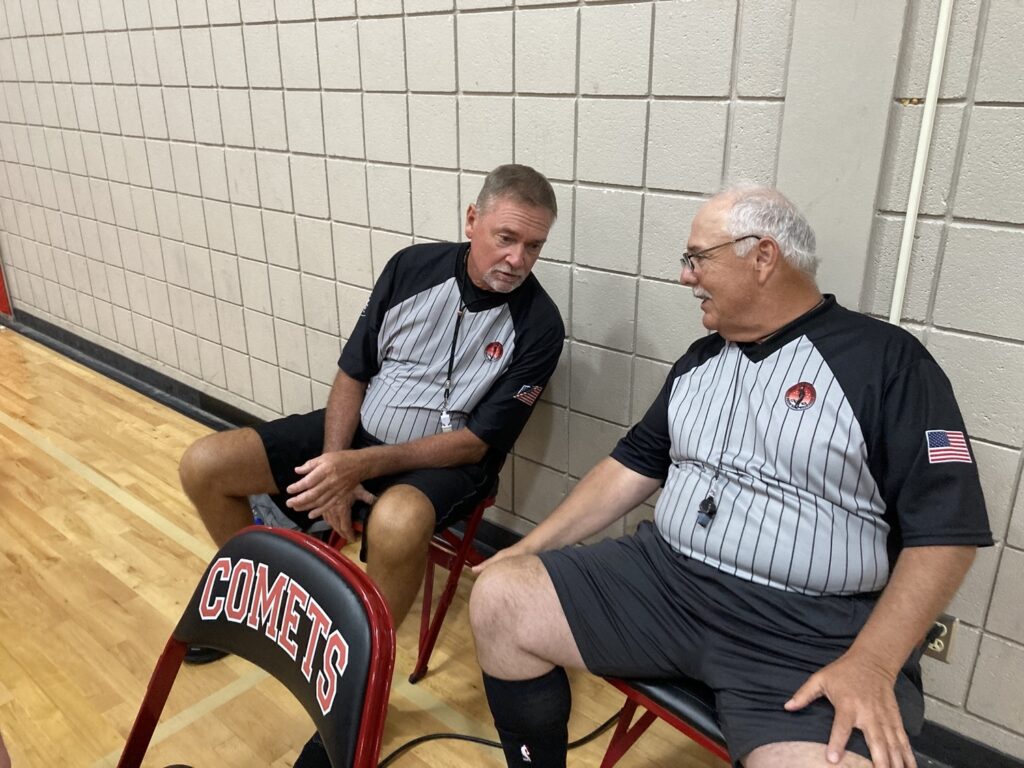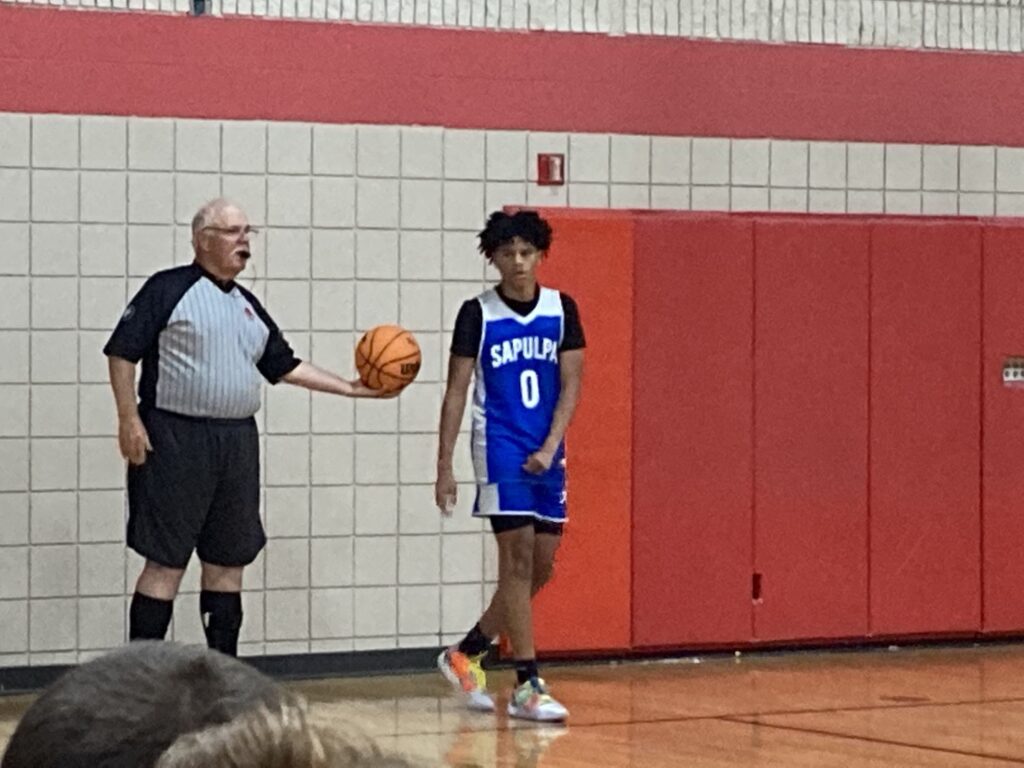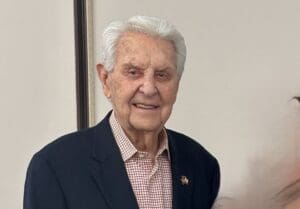You usually don’t notice them until you disagree with one of their calls (or non-calls), but the referees/officials/umpires of the local high school athletics teams are crucial to the competition. You can’t have a game without them and unfortunately, the numbers of local officials have been dwindling over the years.

There are a lot of longtime officials that work games for the local high school sports (and other levels such as JV games, junior high, youth), but there haven’t been as many younger officials joining the ranks and that has left a very shallow pool of people available to officiate.
“We have seen a steady decline in the number of sports officials over the past 15 years, but Covid really accelerated that decline,” said Bobby Kelley, President of the Oklahoma Association of Sports Officials (OASO) for the past eight years. “We lost some officials due to health and several others just didn’t come back after Covid. Some sports are in worse shape than others, but all sports could use an influx of younger officials, for sure.”
The OASO has about 150 basketball officials, and Kelley is in charge of assigning officials for 50-plus schools in the area. He also officiates himself and is going into his 33rd year.

The biggest reason people have cited as to why they stop officiating, or don’t want to start, is due to the verbal abuse they occasionally receive from coaches and “fans.”
“Abusive coaches/parents are certainly a hindrance in keeping officials,” Kelley acknowledged. “Most of the officials that don’t come back, especially in the first couple of years, are due to conflicts with fans/coaches. Basketball is one of the tougher sports to officiate due to the non-stop action and number of calls/no calls that have to be made. On top of that, the fans are right on top of you compared to other sports like football, soccer, softball and baseball. It’s not for everyone for sure. It helps to have thick skin as an official.”
Even though there was a bit of a rebound following the pandemic, the numbers still trail pre-Covid totals.
“I don’t have exact numbers, but in basketball, we probably lost 15-20 percent of our officials during the Covid years,” Kelley said. “Last year we bounced back some, but we are still down 10 percent or more from four years ago and probably 25 percent from 10 years ago.”
Veteran official Rick Smith, in his 43rd year officiating basketball and football, agrees that the officiating shortage is close to a crisis.
“The way things are, you’ve got to get some incentives to get people in,” Smith said. “It’s a huge problem. A bunch of us old guys, we’re going to be gone before too long and there will be more guys leaving than guys coming in.”
Smith was working games at the Bishop Kelley Summer Basketball League in June. One night last week, he worked six high school boys’ games in a row with fellow officiating veteran Scott Brians, who has been at it for 45 years.
“Our problem right now is the average age of the officials in our association is 57,” Kelley said. “So we are making a concerted effort to recruit younger officials now so that when all those officials retire, we still have enough to continue on. Other states are actually in worse shape than Oklahoma when it comes to this.”
The key is to get the younger generation involved.
“All these kids that are playing, some are going to college, some of them will play but a lot of them won’t play (at a higher level),” Smith said. “If they were to stay involved, they know enough about the game that they should do this.”
“Our association has really focused our efforts to recruit high school and college students into officiating,” Kelley added. “Youth sports normally pay a minimum of $30 per hour, which is a great part-time job. We are always looking to add coaches to the officiating fraternity as well, whether that be youth coaches that have finished coaching because their kids have moved on to middle school or school ball coaches that are coaching another sport. Great way to stay around the game, stay in shape and make some extra money.”
Smith agrees, noting that despite all the baggage that comes with the job, he loves it. It’s a good source of supplemental income, it helps him stay active, and it has also provided a new social outlet, especially since he retired from working several years ago.
“It’s a challenge sometimes, but it’s a lot of fun,” Smith said. “My wife always asks me when am I going to quit? ‘Well, when I quit having fun.’ And the guys that you call with, I made a bunch of my friends. Now they all officiate, that’s what we do. I got some really good friends that are coaches, some really good friends that are referees – it’s really good relationship building.”
In order to register with the OSSAA as an official, you must be 16 years old, but kids younger than that can still get involved officiating younger age groups to gain experience and work their way up once they’re old enough.
“We welcome anyone that is interested in putting on the stripes,” Kelley said.
For anyone interested in becoming a football official for the upcoming season, meetings start July 11. Visit www.tulsaofficials.com for more information on officiating football.
Meetings for basketball officials start the first Wednesday in October. Visit www.oaso.info or email info@oaso.info for more on basketball.






